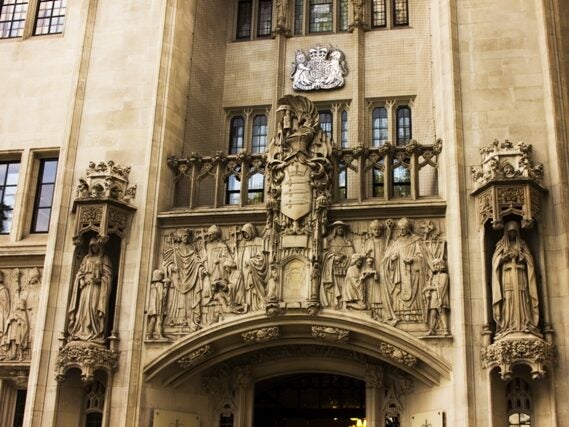
The Times and Oxford Mail have won a four-year legal battle to name a multi-millionaire property developer who was arrested on suspicion of being a member of a child sex ring.
Property developer Tariq Khuja, 40, was arrested alongside nine other men as part of a Thames Valley Police sting in Oxford in March 2012, but he was later released without charge.
Magistrates originally granted an injunction shortly after Khuja’s arrest, banning the disclosure of anything that might identify him until he was charged with an offence.
Seven men were convicted at trial during which evidence was heard that contained references to Khuja, who was then on police bail and not involved in the proceedings.
The trial judge told reporters they could not publish details of any evidence that might identify Khuja for fear of prejudicing any potential court proceedings against him.
After his release without charge, the judge agreed to lift the restriction following a challenge by the newspapers but never did so.
The matter was then moved to the High Court after Khuja applied for an interim injunction barring publication on the basis that identifying him in reports would infringe his right to a private and family life under article eight of the European Convention on Human Rights (ECHR).
The application was dismissed by both the High Court and the Court of Appeal before it was sent up to the Supreme Court.
Gavin Millar QC, for the Times and the Oxford Mail, told the court that granting Khuja anonymity “would chill court reporting dramatically” and would mean that in future, any newspaper that identified a wealthy suspect named in evidence would potentially face legal action.
Today, the Supreme Court ruled by a majority to also dismiss the appeal, thus enabling the papers to identify Khuja in their reports on proceedings.
Delivering the judgment, Lord Sumption said: “…the collateral impact that this process has on those affected is part of the price to be paid for open justice and the freedom of the press to report fairly and accurately on judicial proceedings held in public.”
He said the impact on Khuja’s family life would be “indirect and incidental”, and that “neither [Khuja] nor his family participated in any capacity at the trial, and nothing that was said at the trial related to his family.”
He added: “The policy which permits media reporting of judicial proceedings does not depend on the person adversely affected by the publicity being a participant in the proceedings.
“It depends on the right of the public to be informed about a significant public act of the state, and the law’s recognition that, within the limits imposed by the law of defamation, the way in which the story is presented is a matter of editorial judgment, in which the desire to increase the interest of the story by giving it a human face is a legitimate consideration.
“[Khuja’s] identity is not a peripheral or irrelevant feature of this particular story.”
The Times said the ruling “marks a significant victory for the freedom of the press to report criminal trials”.
Representing Khuja, Alex Cochrane of law firm Collyer Bristow, told the Oxford Mail: “While naturally very disappointed by the majority judgment of the Supreme Court, my client is nonetheless gratified by the strong and supportive dissenting judgment of Lord Kerr and Lord Wilson.
“My client has always maintained his innocence and he continues to believe that, save in exceptional cases, people who are facing criminal allegations should not be named publicly unless and until charged.
“My client was arrested as long ago as 2012 and he has never been charged with – let alone convicted of – any offence. In fact, in July 2013, Thames Valley Police took the step of informing him that he had been “de-arrested”, since when no further action has been taken against him.
“My client will not be providing any further comment and would ask the media to respect his privacy and that of his family.”
Read the Supreme Court’s full judgment.
Email pged@pressgazette.co.uk to point out mistakes, provide story tips or send in a letter for publication on our "Letters Page" blog
